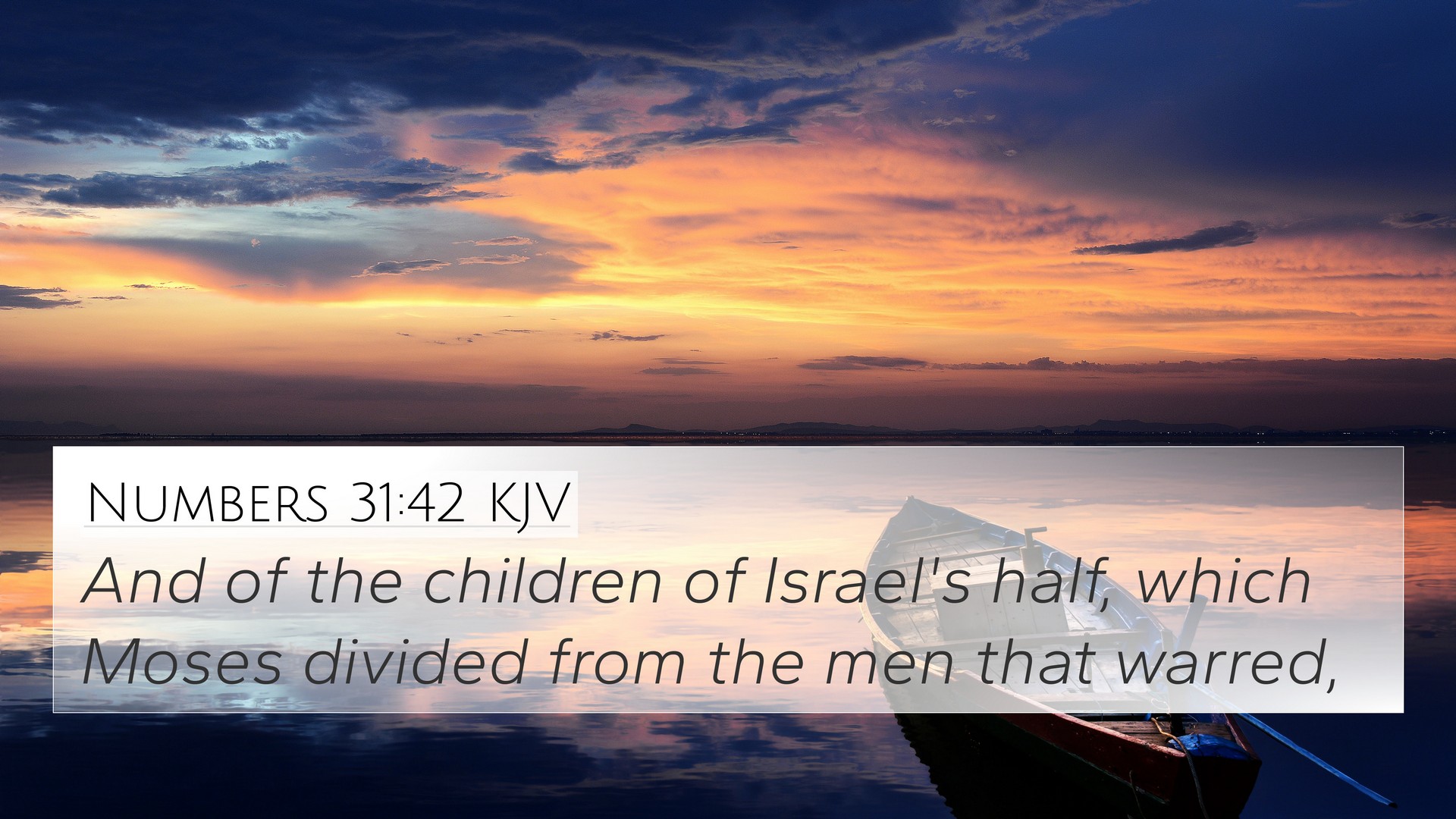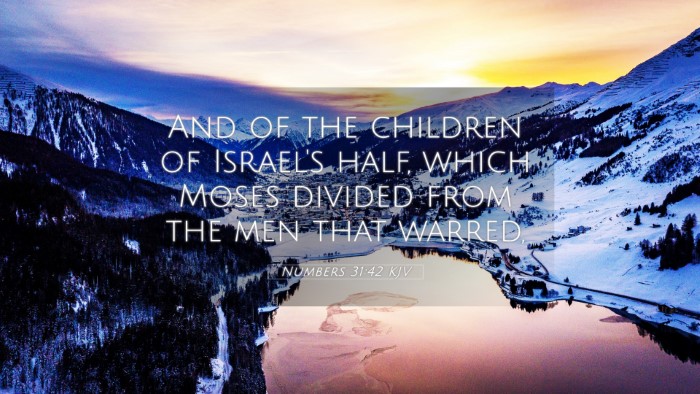Understanding Numbers 31:42
Verse: Numbers 31:42 - "And of the children of Israel's half, which Moses divided from the men that warred, and the congregation's half." (KJV)
The verse presents a critical moment post-battle where Moses divides the spoils, highlighting the organizational and distributive principles at play in Israel's community life.
Meaning and Insights from Commentaries
Matthew Henry’s Commentary
Matthew Henry emphasizes the importance of order and fairness in the division of spoils after warfare. He notes that the division into halves signifies the equitable treatment of warriors and non-warriors alike, ensuring that every part of the community benefits from the victories achieved. This reflects God's justice in rewarding laborers while remembering the needs of the wider congregation.
Albert Barnes’ Notes
Albert Barnes highlights that this verse symbolizes a larger principle regarding the allocation of resources and the recognition of collective effort. He points out how Moses’ leadership is crucial to maintaining balance and fairness within the Israelite community. Such divisions not only serve practical needs but also reinforce the unity of the people under divine command.
Adam Clarke’s Commentary
Adam Clarke elaborates on the implications of this division. He notes that it stands as a testament to obedience and structure in a newly forming nation. The act of sharing the spoils ensures that all tribes feel included and valued, thus fostering cohesiveness among the Israelites after a period of conflict. Clarke also emphasizes the spiritual aspect indicating God’s sovereignty over the outcomes of war and its spoils.
Cross-References to Numbers 31:42
This verse is interconnected with several biblical passages that relate to themes of warfare, leadership, and community distribution:
- Deuteronomy 20:14: Discusses the spoils of war and their rightful division.
- Josue 22:8: Reflects on the distribution of spoils and the importance of community engagement.
- 1 Samuel 30:24: Talks about equitable sharing of war gains among those who engaged in battle and those who stayed behind.
- Hebrews 7:4: Refers to Melchizedek and the principle of giving a tenth, connecting to themes of blessings from God after victory.
- 1 Corinthians 9:7: Discusses the right of laborers to partake in the fruits of their labor, relating to the allocation of spoils.
- Romans 12:13: Encourages sharing and providing for the needs of the community, echoing the sentiment of shared spoils.
- Matthew 25:30: Relates to the responsibility of stewardship, aligning with the principles of how spoils and rewards are managed.
Thematic Connections
Thematically, Numbers 31:42 speaks to the following biblical insights:
- Justice and Equity: Reflects God’s command for justice among His people, ensuring fairness in division.
- Community and Leadership: Showcases the essential role of Moses as a leader and the importance of unity in community struggles and victories.
- Divine Providence: A reminder that outcomes in conflicts and the resultant blessings are under God's sovereign plan.
- Importance of Remembrance: Encourages the Israelites to remember the struggles of war and those who fought next to them.
Conclusion: Linking Biblical Texts
In summary, Numbers 31:42 offers profound insights on community, leadership, and divine providence within the context of a wartime scenario. By employing tools for cross-referencing, one can observe how this verse interconnects with various themes across both the Old and New Testaments, facilitating a deeper understanding of biblical principles.
Through cross-referencing biblical texts and exploring the connections between Bible verses, readers can uncover a richer understanding of scripture and its applications to their lives.


